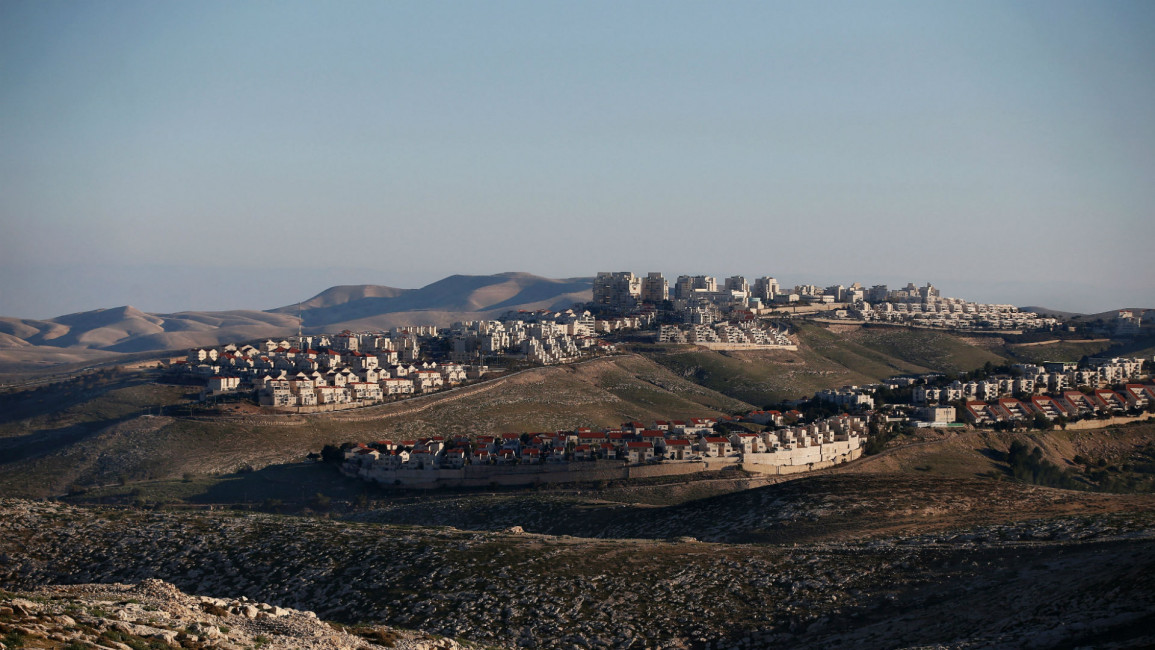Israeli banks complicit in 'expansion of West Bank settlements'
Banks in Israel are contributing to the expansion of illegal settlements in the occupied West Bank by providing loans and mortgages for construction, Human Rights Watch (HRW) said in a report on Wednesday.
Israeli settlements are considered illegal under international law and are a major obstacle to the establishment of an independent Palestinian state.
The rapid expansion of illegal settlements since Israel's 1967 occupation of East Jerusalem and the West Bank provide a lucrative market for loans and mortgages, providing an incentive for banks to continue to offer funding.
"There are many, many steps banks can and should take to at the very least reduce their involvement in settlements, if not stop it entirely," Sari Bashi, HRW's Israel and Palestine advocacy director, said.
"If they choose not to take steps, institutional investors who care about their own human rights activity should take action".
Israeli banks lend money to homebuyers, settlement councils and companies carrying out construction in the West Bank, while most also have branches in settlements.
The law in Israel requires banks to accept settlers as customers, meaning they cannot refuse to open accounts for them.
Banks are not obligated, however, to provide financial backing for illegal construction in the West Bank, and could cite other reasons for declining to provide loans such as the construction's implications for Palestinian human rights.
"It is Human Rights Watch's assessment that banks can, under domestic law, avoid providing many services that support settlements and settlement activity, and that doing so is necessary to fulfil their human rights responsibilities", the report said.
It also urged the banks' shareholders to "ensure that their business relationships do not contribute to or benefit from" human rights violations.
Israeli banks should abide by the UN guiding principles on business and human rights, a set of non-binding guidelines meant to address abuses committed in business activity, HRW added.
HRW warned that continuing to operate in settlements could invite divestment from ethically-minded shareholders, citing a 2016 move by the pension fund of the United Methodist Church that blocked five Israeli banks from its investment portfolio, saying they profit from rights abuses.
The Association of Banks in Israel, an umbrella group, declined to comment on the report's claims.
Human Rights Watch has previously issued a report claiming businesses operating in the settlements contribute to Israel's violation of human rights and has called on them to cease their activities there.
More than 600,000 Israeli settlers live in East Jerusalem and the West Bank.


